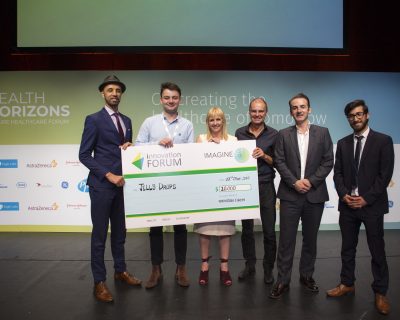Site
Select your branch
How to find your dream job as a scientist | A conversation with VRS
This is an extract of our conversation with Eleanor, Craig and Franck from VRS Recruitment.
If you’re interested in the full interview, you can check it out here.
Tatana: What do you think is the unique advantage of VRS?
Craig: Recruitment agencies generally have quite a bad reputation. I think what makes us different is that, as scientists ourselves, we understand the product, service or technology that the company focuses on. Equally, we understand the passion the company has for this and we, therefore, translate that into our search for the right candidates. This way we can find people who align well with our clients.
We understand the passion the company has for this and we, therefore, translate that into our search for the right candidates.
Franck: We’ve always focused on quality rather than quantity and it’s proven to be the right approach for us during our 20+ years in the industry. We enjoy supporting people throughout their careers; graduates whom we’ve spoken to become scientists, then managers and then when they come to hire themselves, VRS are their first port of call. That for us speaks volumes. Also, we don’t harass or spam clients with hundreds of jobs or CVs, our job is to save everyone time and make the right connection.
Tatana: Regarding the job opportunity itself, a lot of companies have mastered the art of writing descriptions to attract potential candidates. How should a candidate properly analyze it?
Eleanor: I would suggest writing a list of all your non-negotiables, for example salary, location, industry, potential for career progression, flexible working etc. You should ask these key questions at the very start of the recruitment process, ensuring the role is indeed as you understand it to be from the Job Description and that it still aligns with your requirements.
By getting all the non-negotiables clarified at the start, you won’t waste your or the company’s time.
Franck: Asking questions is always very important and I think people sometimes feel scared to ask questions during an interview. It’s important to bear in mind that they are interviewing the employer just as much as the employer is interviewing them. Also, moving jobs isn’t just a professional decision, it impacts your personal life too: maybe you’ll have to buy a car, find childcare solutions, etc. A new job can be a very big life change so it’s important to understand all aspects of it. I think that’s also another good reason to use recruiters, because we always take these factors into consideration, and we are happy to ask any questions candidates may be reluctant to ask directly.
Tatana: Have you ever come across bizarre job descriptions?
Craig: One of the most bizarre things, which actually comes up on job descriptions regularly, is asking for an unrealistic combination of experience or skills. In a job description companies often list everything they’d like a candidate to bring to the role, but in doing so, they’re asking for someone who doesn’t exist. It happens all the time, but that doesn’t make it any less bizarre!
Tatana: What should I avoid as a potential candidate and what should I be careful about for a short interview?
Craig: A non-flexible mindset – don’t be too rigid. It is important to know what your non-negotiables are, but be open as to what the company has to say. Some roles for example will have existed in an organization for years and the scope of the role and progression will be very clear cut. In other instances, the role may not be as clearly defined and will be more flexible around the individual candidate.
Eleanor: Be honest. Do not lie or exaggerate about any experiences that you have, because you will get caught out and unfortunately that will mean the end of that opportunity for you.
Be honest. Do not lie or exaggerate about any experiences that you have.
Tatana: What question I should ask during the job interview?
Craig: I recommend imagining it’s your first day in that organization – what questions do you need answering in order to do the job properly? Often these questions are centered around what projects you’ll be working on, who’s your manager, who are the people in your team etc. If you think about it this way, you’ll immediately come up with 10-15 questions that you want to ask. Whereas, when an interviewer asks you if you have questions on the spot, it can be difficult to come up with anything as they have probably already answered many high-level questions in the interview already. Not having questions is never good – it can sound to the employer like you’re not interested, so make sure you always have questions at the end of the conversation.
Franck: Sometimes you can ask them what the negative aspects of the job are, such as “if you could change something about the job what would it be?” For example, it could be really a physically demanding role, or could require you to spend a lot of time traveling. This is useful information to know, so don’t be scared to ask questions that might sound challenging for the employer too, it is important to get a real insight into the position.


